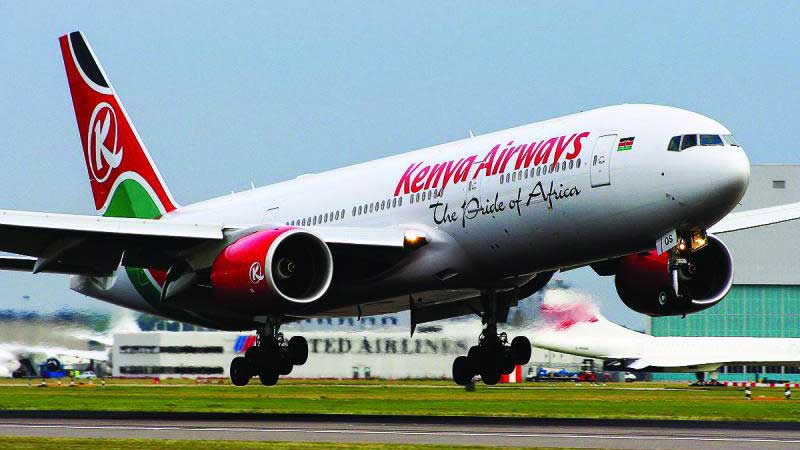KQ Shareholders Stare At Losses As The Airline Becomes Fully State-Owned

More than 80,000 shareholders who own the Kenya Airways ( KQ’s) company stock at National Securities Exchange (NSE) stare at losses after Kenyan Members of Parliament ( MPs) unanimously adopted the report of the Transport Committee to nationalise the country’s main airline, to save it from mounting debts.
The loss-making airline has a debt which amounts to Ksh 23 billion. The government will be forced to pay off KQ debtors in a bid to pave way for the nationalisation of the national carrier.
According to Transport Committee Chairman, David Pkosing, the firm’s shares, which have already devalued will force minority shareholders to sell the shares at lower prices than they expect, he further noted that the Treasury has resorted to converting some shares into bonds that can mature into ten years.
“The government will have to pay the money because its KQ that went to the bank, not the other way around. Treasury and Ministry of Transport will see how to convert the shares. However, what might be out of negotiation is the fate of Minority shareholders, already the shares are coming down, it will be devalued and they are going to make huge losses,” he stated.
The firm, which is 48.9 percent government-owned and 7.8 percent held by Air France-KLM, has been struggling to return to profitability and growth. It owes CBA Group Sh3.1 billion, Equity Bank Sh5.2 billion, National Bank Sh3.5 billion, Co-operative Bank Sh3.3 billion, DTB Bank Sh3.3 billion and KCB Group Sh2.1 billion.
In 2017, the airline restructured its USD 2 Bn of debt by converting the bulk of their debts into shares, in an attempt to relieve cash flow pressure, it later proposed taking over the running of Nairobi’s Jomo Kenyatta Airport to boost its revenue but the Parliament opposed this move.
The nationalization of the airline will enable it to join other regional airlines in profitability and competitive venture by leveraging on government subsidiaries in the form of jet fuel taxes and engine taxes.
It is anticipated to be more competitive, allowing it to challenge players like Ethiopian Airlines and RwandaAir, which are rapidly taking up the aviation space in the region.
“This is a new dawn to the country’s aviation sector and if well implemented, it will open new markets to Kenya Airways and thereby increase their income,” Mr Pkosing said.
In their report, the Transport committee also recommended the formation of an Aviation Holding Company (AHC) which will hold 4 subsidiaries including the Kenya Airports Authority (KAA), Kenya Airways (KQ), Jomo Kenyatta International Airport (JKIA), and a centralized aviation college.
The committee’s report further recommended the holding company be granted tax concessions for a specific period and that it be exempted from paying excise duty on all goods, including jet fuel.
Featured Courtesy Image: The Standard